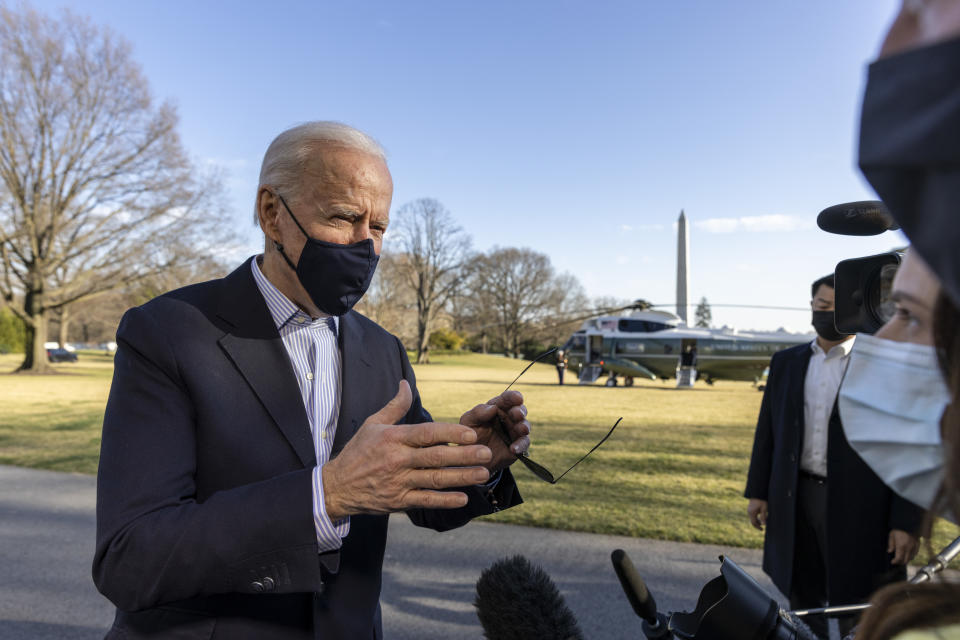Biden may split massive $3 trillion infrastructure plan into two separate bills

[hotlink][/hotlink]
Rather than one massive, multi-trillion-dollar stimulus proposal, President Joe Biden is reportedly eyeing a pair of smaller, yet no less ambitious bills addressing infrastructure, climate change, and education and aimed at jumpstarting the economy.
White House advisers are expected to present Biden with a proposal this week that would split his economic agenda into two separate pieces of legislation, according to the New York Times. Combined, the two bills would call for as much as $3 trillion in new spending, likely financed by tax hikes on corporations and wealthy individuals.
By breaking up the President’s sprawling designs across two smaller bills, White House officials believe they could increase the chances of pushing Biden’s agenda through a closely divided Congress, according to the Times.
The first piece of legislation would incorporate large swaths of Biden’s “Build Back Better” agenda from the campaign trail, and feature significant investments in infrastructure, clean energy, manufacturing, and “high-growth industries of the future” like super-fast 5G mobile technology. The bill would propose spending nearly $1 trillion alone on building and improving roads, bridges, railways, ports, and the electrical grid (including electric vehicle charging stations), the Times reports.
The second piece of legislation would devote heavy spending to “human infrastructure” initiatives, with programs that would look to provide free community college, universal pre-kindergarten education, national paid leave, and reduced child care costs. A key focus of the second bill would be to increase the workforce participation of women, who have been hit disproportionately hard by the pandemic.
Though White House officials believe the first bill would probably garner more support among Republicans and business leaders, the prospect of increasing taxes to pay for either proposal is unlikely to get very far among either group. Senate Minority Leader Mitch McConnell (R-Ky.) said last week that he did not believe there would be “any enthusiasm on our side for a tax increase” to pay for the President’s infrastructure plan, while business groups that have expressed support for infrastructure spending have also balked at the prospect of corporate tax hikes.
That means that unless the White House is willing to scale back any tax increases in order to secure bipartisan cooperation—a move that would almost certainly result in a more limited set of infrastructure proposals—Democrats would likely have to resort to budget reconciliation measures to push Biden’s plans through the Senate along party lines.
This story was originally featured on Fortune.com

 Yahoo Finance
Yahoo Finance